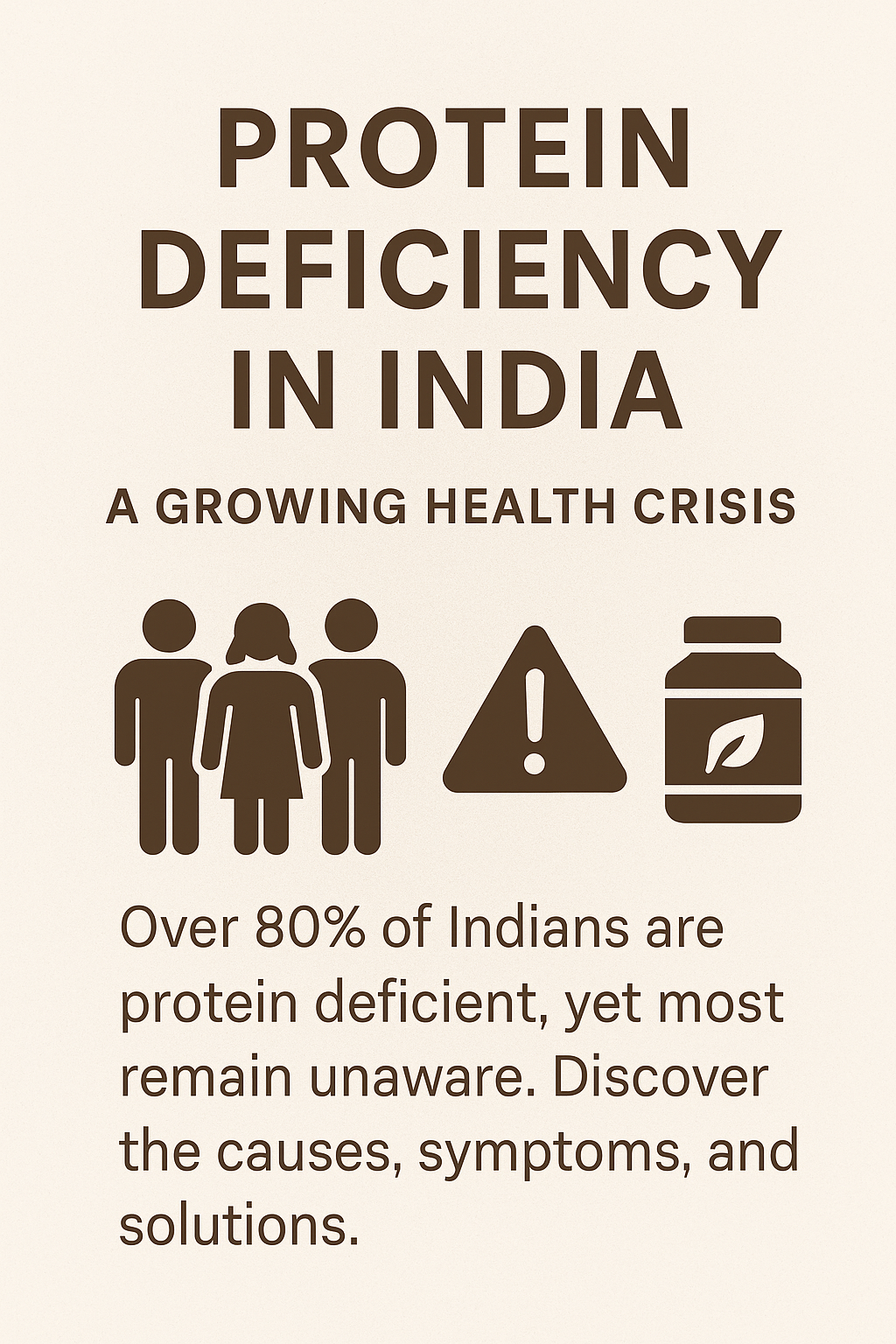
Protein Deficiency in India: A Growing Health Crisis
Introduction
Despite India's booming fitness industry and growing health awareness, protein deficiency remains a silent epidemic affecting a large portion of the population. According to the Indian Market Research Bureau (IMRB), nearly 80% of Indians are protein deficient, yet most remain unaware of their daily requirement. This widespread deficiency can have serious implications on muscle health, immunity, and overall wellness.
In this blog, we'll break down the causes, symptoms, and consequences of protein deficiency in India—and how you can easily meet your protein needs with smart dietary choices and high-quality supplements.
What is Protein and Why is it Essential?
Protein is the building block of life. Every cell in your body—from skin and hair to muscles and enzymes—requires protein to function. It plays a vital role in:
- Muscle repair and growth
- Hormone and enzyme production
- Strengthening immunity
- Maintaining skin, nails, and hair health
Yet, despite its importance, the average Indian diet—especially vegetarian—falls short on complete protein sources.
Why is Protein Deficiency So Common in India?
Several cultural and dietary factors contribute to India’s protein gap:
1. Carbohydrate-Dominant Diet
Staples like rice, chapati, and potatoes dominate the Indian plate. While they provide energy, they lack essential amino acids required for body repair and muscle building.
2. Low Awareness
Most Indians are unaware of the Recommended Dietary Allowance (RDA) of protein—roughly 0.8g per kg of body weight. For someone weighing 60 kg, that’s 48g of protein daily—often unmet by a typical Indian diet.
3. Vegetarianism
India has one of the world’s largest vegetarian populations. While plant-based diets can be healthy, they require careful planning to include complete proteins—those containing all 9 essential amino acids.
4. Poor Digestive Health
Even if one consumes enough protein, poor digestion and gut health can hinder protein absorption—leading to functional deficiency.
Symptoms of Protein Deficiency
Recognizing protein deficiency early can help prevent long-term damage. Watch out for these signs:
- Persistent fatigue and weakness
- Hair thinning and brittle nails
- Slow wound healing
- Frequent infections
- Muscle loss or inability to build muscle
- Mood swings and poor focus
Who is at Risk?
- Vegetarians and vegans
- Children and teenagers during growth spurts
- Pregnant and lactating women
- Elderly adults
- Fitness enthusiasts with high protein demands
- People with digestive disorders
Bridging the Protein Gap: Dietary Tips
✅ Include protein-rich foods in every meal:
- Animal-based: Eggs, chicken, fish, dairy
- Plant-based: Lentils, beans, chickpeas, soy, tofu, nuts
✅ Combine foods to form complete proteins:
E.g., rice + dal, peanut butter + whole grain bread
✅ Supplement when needed:
High-quality protein powders, especially with added enzymes and probiotics (like BC30®), improve absorption and gut health.
Nectarpure’s Solution to Protein Deficiency
At Nectarpure, we understand the challenges of meeting protein needs in the Indian context. That’s why we developed:
FusionMax Whey Protein – Powered by BC30®
✔️ 25g protein per scoop
✔️ Scientifically formulated for maximum absorption
✔️ Enhanced with clinically proven probiotics
✔️ Tastes like real iced latte
✔️ HAP-Safe Certified: Free from heavy metals, aflatoxins, and pesticides
Whether you’re vegetarian, busy with work, or just getting started with fitness—FusionMax Whey helps you overcome nutritional gaps without compromising on taste or safety.
Conclusion
Protein deficiency in India is a real, but solvable, problem. By raising awareness and incorporating smarter dietary choices, we can reverse this trend and empower millions to lead healthier, stronger lives.
